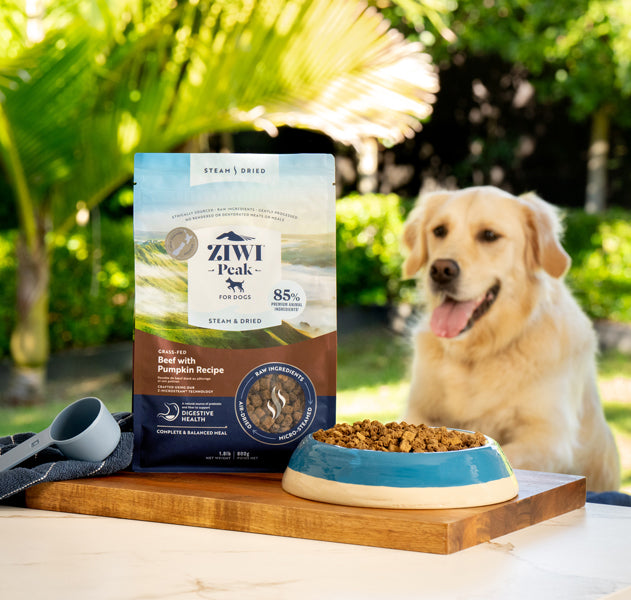
Even the most well-cared-for dogs can have problems with itching now and then. But there are solutions.
Why do dogs itch?
Your dog’s skin could be irritated for a number of reasons - from food sensitivities (usually to grains or certain proteins) to environmental allergies such as dust mites or pollen. Your vet will be able to help, but it’s also worth doing your own research to see whether diet and lifestyle are contributing factors.
Itching can be a combination of your dog’s digestive system having to deal with processed foods and their bodies not getting the nutrients they need to thrive.
An overload of processed food
Artificial colours and flavours, grains, potatoes, legumes, starches and added sugars are just some of the ‘filler’ ingredients lurking in commercial dog foods that contribute to skin issues. These cheap ingredients can’t be efficiently processed by your dog’s digestive system - which means they wreak havoc on your dog’s skin and overall health.
Missing nutrientsStudies show that deficiency of essential fatty acids is one of the main causes of canine dermatosis (inflammatory skin issues), and that incorporating these ingredients into your pet’s diet is an effective form of prevention.
Dog itching remedies - what can you do?
To remedy your dog’s itching, choose a high-meat diet that includes the following:
- Omega 3 fatty acids decrease inflammation and are an important supplement for allergies. The ZIWI Peak® mackerel & lamb recipe contains whole, wild-caught blue mackerel and the highest levels of omega 3 fatty acids of all our recipes to support skin health and coat condition.
- Kelp is a great source of bio-available nutrients like iodine and minerals. You’ll find kelp in all ZIWI Peak recipes.
If you think your dog may have a food allergy, try an elimination diet where you stick to a single source of protein (ideally a ‘novel’ protein source, which is one your dog hasn't eaten before, such as duck or venison) for 4-6 weeks. When you slowly introduce other foods, you’ll be able to uncover the source of the allergy and eliminate it from your dog’s diet.
Sources:
https://www.greencrossvets.com.au/dog-skin-sensitivities/
https://maggieandnicole.com/itching-red-paws-tear-stains-and-a-dog-with-...
https://peterdobias.com/blogs/blog/itchy-skin-and-how-to-protect-your-do...
https://patentimages.storage.googleapis.com/ad/3d/46/dee3a72031650f/US57...
https://www.msdvetmanual.com/dog-owners/skin-disorders-of-dogs/dermatiti...
https://ziwipets.com/blogs/ingredients/kelp-boost-your-dog-naturally









